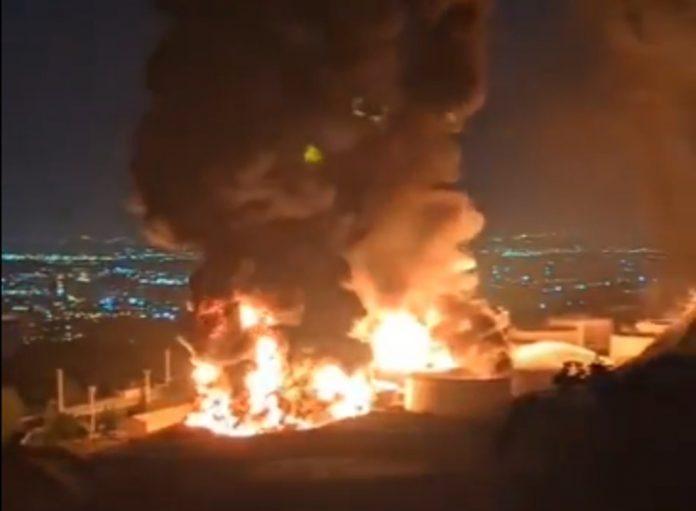Iran-Israel War | As the Middle East teeters on the edge of full-scale war, the ongoing conflict between Iran and Israel, the two regional political and military powers, has entered a perilous phase.
The latest exchange of missile strikes, cyberattacks, and covert operations has sparked global concern over the potential for a devastating regional escalation—one that could exact a human, political, and economic toll far beyond current projections.
Strategic Comparison: Iran vs. Israel
The scale of imbalance between Iran and Israel is stark—and crucial to understanding the dynamics of the war. Iran is approximately 75 times the size of Israel in terms of landmass. It spans 1.65 million square kilometers compared to Israel’s 22,000. Iran has a population of nearly 89 million, while Israel is home to about 10 million.
Geographically, Iran enjoys vast mountainous terrain, desert fortresses, and access to both the Persian Gulf and Caspian Sea. Israel, on the other hand, is compact—bordering Lebanon, Egypt, and Jordan—with critical military and civilian infrastructure densely concentrated in its urban centers.
In escalatory attack, Israel strikes world’s largest gas field in Iran
A direct confrontation between Tehran and Tel Aviv is no longer a theoretical scenario. Israel’s strikes on Iranian nuclear and military assets marked a sharp escalation. Iran responded with a barrage of drones and ballistic missiles, some targeting civilian areas. The toll has already been severe: Israeli officials estimate over 400 military and civilian casualties in initial attacks, while Iran claims to have suffered more than 1,200 deaths, many from precision-guided Israeli strikes on infrastructure near Isfahan and Mashhad.
But the broader danger lies in what follows. If hostilities continue unchecked for even a few more weeks, military analysts warn of a likely death toll in the tens of thousands. Israeli missile defense systems like Iron Dome and David’s Sling have performed admirably but cannot intercept every projectile. Should Hezbollah, Iran’s most powerful proxy in Lebanon, enter the conflict full-scale, the northern front could see saturation rocket attacks resulting in mass civilian casualties—potentially 5,000–10,000 Israeli deaths in a matter of weeks.
Iran, for its part, would face catastrophic consequences. Though the Islamic Republic boasts a vast and hardened geography, a prolonged Israeli air campaign could cripple its nuclear facilities, IRGC command hubs, and strategic ports along the Persian Gulf. Western intelligence sources estimate that sustained Israeli bombardments, combined with cyber warfare and sabotage, could result in over 50,000 Iranian casualties in urban and military centers within the first two months of escalation.
The economic consequences could be equally severe. Iran’s fragile economy—already buckling under U.S. sanctions—would face collapse if its oil export routes in the Strait of Hormuz are disrupted.
Israeli attack on Iran quickly impacts four key areas of world economy
Israel, though economically resilient, would see a significant downturn as tourism plummets, tech exports are disrupted, and its population is placed under near-constant rocket alerts. The Tel Aviv Stock Exchange has already seen historic volatility, and foreign investment is stalling.
Diplomacy and Politics
Diplomatically, the war has global ramifications. U.S. forces in Iraq and Syria are increasingly exposed to Iranian-backed militias. Gulf states, particularly the UAE and Saudi Arabia, are trying to walk a dangerous tightrope—seeking regional stability while resisting alignment with either side.
A broader war could drag them in or prompt further normalization between Arab states and Israel, setting off another chain of consequences across the Muslim world.
What would constitute “defeat” in such a war? For Iran, it would mean the destruction of its nuclear ambitions, the collapse of its proxy networks in the region, and potentially internal regime destabilization as economic and human costs mount.
For Israel, defeat would mean an inability to deter Iran’s power projection, failure to protect its civilian population, and a loss of international support if the war is seen as disproportionate or excessively damaging to regional stability.
There is also the risk of miscalculation dragging in global superpowers. Russia, currently entangled in Ukraine, has strategic ties with Iran. China, reliant on Iranian oil, may push for diplomatic offramps.
The United States, already supplying intelligence and weapons to Israel, may face increasing domestic and international pressure to intervene more directly, particularly if American bases in the region are targeted.
The Ultimate Cost
The international community has a brief window to act. The United Nations, along with European and Gulf mediators, must accelerate ceasefire efforts. A temporary pause, however, will not be enough. There must be a long-term strategy to address Iran’s nuclear ambitions, Israel’s security concerns, and the broader Sunni-Shia geopolitical rivalry that fuels regional instability.
The cost of inaction is steep. The human toll could be staggering, the economic damage global, and the political fallout irreversible. If this conflict continues on its current path, it will not be confined to Tehran and Tel Aviv—it will engulf the region and scar the international order for a generation.
Follow for more: Twitter (X) | Facebook | Instagram | LinkeIn















